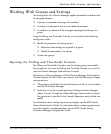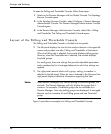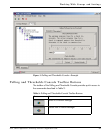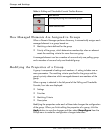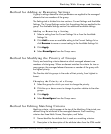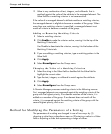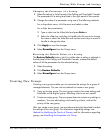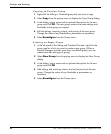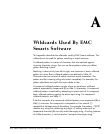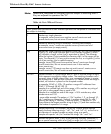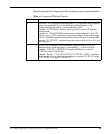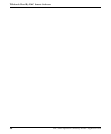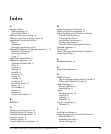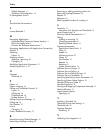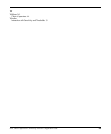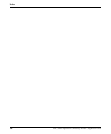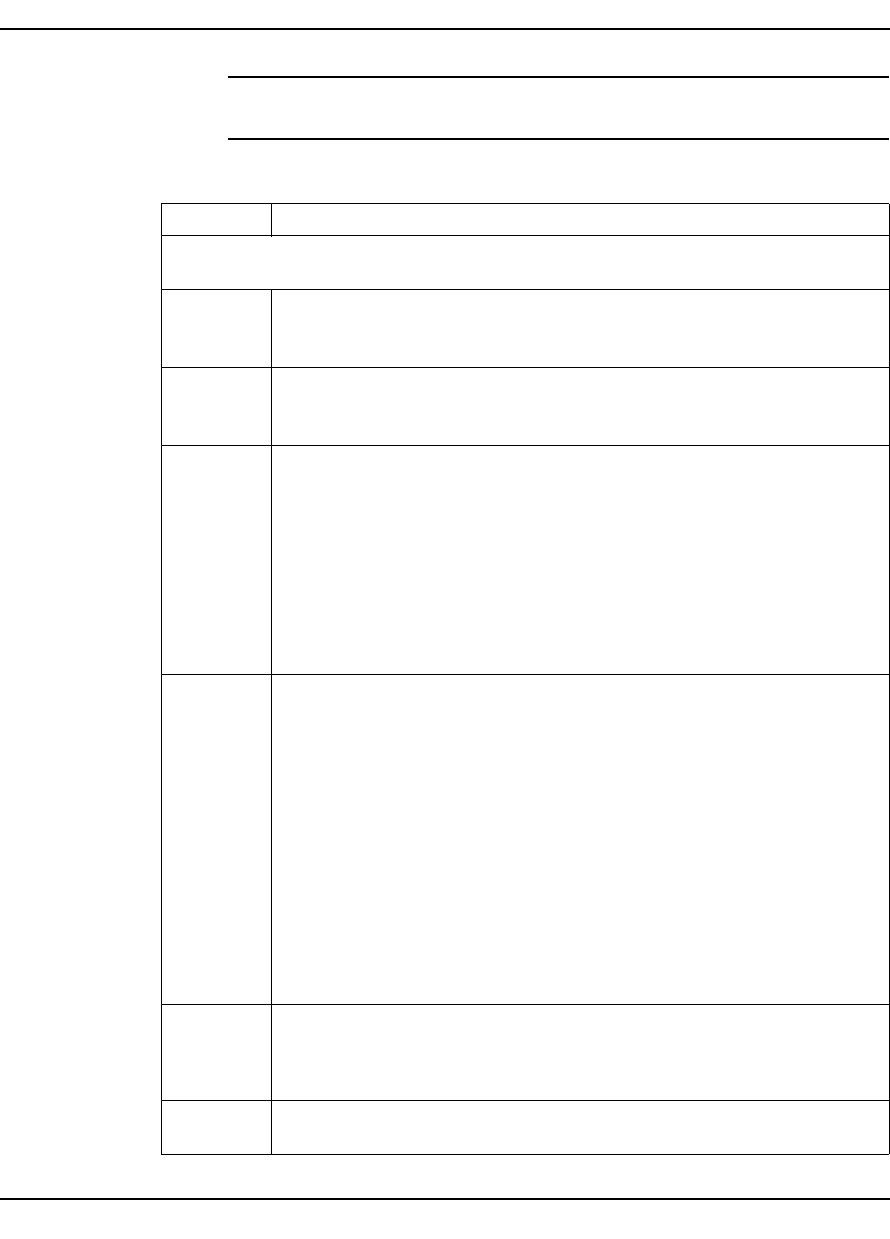
Wildcards Used By EMC Smarts Software
44 EMC Smarts Application Connectivity Monitor Configuration Guide
Note: Spaces are interpreted as characters and are subject to matching even if
they are adjacent to operators like "&".
Table 10: Basic Wildcard Patterns
CHARACTER DESCRIPTION
Note: Spaces specified before or after wildcard operators are interpreted as characters and
are subject to matching.
? Matches any single character.
For example, server?.smarts.com matches server3.smarts.com and
serverB.smarts.com, but not server10.smarts.com.
* Matches an arbitrary string of characters. The string can be empty.
For example, server*.smarts.com matches server-ny.smarts.com and
server.smarts.com (an empty match).
[set] Matches any single character that appears within [set]; or, if the first character
of [set] is (^), any single character that is not in the set. A hyphen (-) within
[set] indicates a range, so that [a-d] is equivalent to [abcd]. The character
before the hyphen (-) must precede the character after it or the range will be
empty. The character (^) in any position except the first, or a hyphen (-) at the
first or last position, has no special meaning.
Example, server[789-].smarts.com matches server7.smarts.com through
server9.smarts.com, but not server6.smarts.com. It also matches
server-.smarts.com.
Example: server[^12].smarts.com does not match server1.smarts.com or
server2.smarts.com, but will match server8.smarts.com.
<n1-n2> Matches numbers in a given range. Both n1 and n2 must be strings of digits,
which represent non-negative integer values. The matching characters are a
non-empty string of digits whose value, as a non-negative integer, is greater
than or equal to n1 and less than or equal to n2. If either end of the range is
omitted, no limitation is placed on the accepted number.
For example, 98.49.<1-100>.10 matches a range of IP addresses from
98.49.1.10 through 98.49.100.10.
Example of an omitted high end of the range: <50-> matches any string of
digits with a value greater than or equal to 50.
Example of an omitted low end of the range: <-150> matches any value
between zero and 150.
A more subtle example: The pattern <1-10>* matches 1, 2, up through 10,
with * matching no characters. Similarly, it matches strings like 9x, with *
matching the trailing x. However, it does not match 11, because <1-10>
always extracts the longest possible string of digits (11) and then matches only
if the number it represents is in range.
| Matches alternatives. For example,”ab|bc|cd” without spaces matches
exactly the three following strings: “ab”, “bc”, and “cd”. A | as the first or
last character of a pattern accepts an empty string as a match.
Example with spaces “ab | bc” matches the strings “ab “ and “ bc”.
\ Removes the special status, if any, of the following character. Backslash (\)
has no special meaning within a set ([set]) or range (<n1-n2>) construct.



